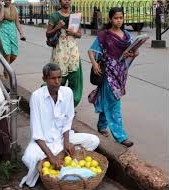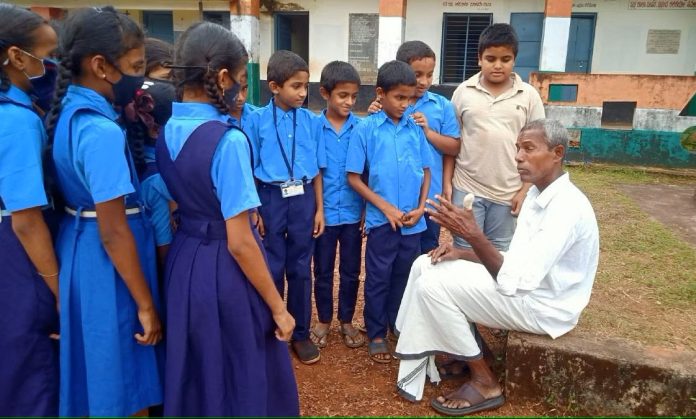– Mohammed Atherulla Shariff

Embarrassment of an individual kindled a literacy lamp in a village. It was a usual day for orange vendor Hajabba in Mangalore city until a foreigner conversed him in English. Since he was illiterate, he couldn’t understand what was asked. The customer tried to explain to him, still he could not make out. The customer moved out to another seller while muttering something.
“It hurt me a lot. I was not educated, so the customer left after insulting me,” he felt.
At that moment he decided not to let the same happen to others who would remain unschooled due to lack of resources. He vowed to start a school in his village New Padapu, just 20 Kms from Mangalore. It had no school then.
It was in 1994. He started saving some amount out of the daily earning of Rs.150/- which itself was insufficient for his family needs.
Harekala Hajabba, now around 70, was born into a Muslim family of very modest financial means. His parents worked as daily wagers and could barely make ends meet. So, he had to labour to support his family.
That fortunate day came a few years later in 2000 when a small school was started, initially in the village Madrasa attached with the Masjid. His humble beginning drew the attention of people around who helped him build a separate building for the school. Later the government authorities also came forward and established the government school which is popularly known as Hajabba School. Higher secondary sections were added in 2007.
Hajabba in Universities
The motivational story of the orange vendor has got a place in the syllabus of many universities. Tumkur University has a chapter on Harekala Hajabba in IV semester of degree classes as ‘Akshara Sant’ (Letter Saint) written by Ismath Pajeer as per the NEP in 2020. A chapter is included in VIII textbooks in Kerala written by the same author.
Mangalore University had it in its syllabus for B.Com students from 2013 to 2016. So also the Yenopoya University taught its students for seven years. Davangere and Kuvempu Universities also have Hajabba in their syllabus.
A book titled as Aproopada Samajsevaka Harekal Hajabba (A Rare Social Activist, Harekal Hajabba) in Kannada written by Ismath Pajeer was published in 2011 and it has been translated into English and Beary languages too.
He was honoured with the fourth- highest civilian award in India, Padma Shri in 2021. When Hajabba got the news of being honoured with the Padma Award, he was standing in line at a ration shop. He was surprised to hear this news. He went to Rashtrapati Bhavan barefooted to receive the award from President of India Ram Nath Kovind.




